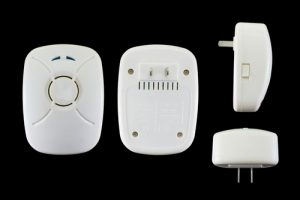People believe that cleanliness and tidiness are the key factors to prevent pests in a house. In the majority of cases, it is indeed more efficient to attack with good sanitation than half to later apply chemicals. And even when applying chemicals, without good sanitation practices, the rodents and roaches will eat real food particles before eating the bait. Although sanitation is a great factor of avoiding most pest problems, in some cases, it’s simply not enough.
To prevent pests from settling in your home, try to control open sources of food and moisture. In the kitchen, for example, make sure to store foodstuff in special containers, remove crumbs, cover trash cans and pet food. A good idea would be to install screens, tighten seal gaps around doors and windows and frequently check for cracks and crevices to protect your home from letting in the unwelcomed guests.
DIY hacks and remedies that can be found online won’t guarantee an effective, safe and long-term solution to a pest problem. We attempted to debunk the myths that some household items can be re-purposed to remove bugs and rodents. Don’t waste your time and resources on methods that can’t prevent or solve this time-sensitive issue.
Citruses
There are so many holistic recipes involving different natural extracts, oils, and scents that supposedly exterminate insects. Here’s the biggest issue with this approach: while a certain scent can repel one insect, it might as well attract another. For example, a combination of lemon and clove extracts repulses ants, but it’s extremely appealing to fruit flies.
It is widely believed that mosquitoes can’t stand citronella, mint and laurel plant extracts. As this may be true, there’s no proof that these scents can have an impact from a distance or in the long run. Considering all the scary diseases mosquitoes can spread, remember to protect yourself and wear an EPA-approved repellent on exposed skin when outside. If you have a pond or a fountain in your yard, eliminate any standing water where mosquitoes might breed.
Peppermint Oil
Peppermint oil is said to be a great natural deterrent for rats and mice. Some people believe that due to its high concentration and potent aroma, rodents just can’t stand it. Unfortunately, this is not the case. Peppermint actually has very little to no effect on rats and mice. If you think about it, rats are native inhabitants to sewers, and if that foul stench doesn’t bother them, peppermint would seem like a more pleasant alternative.
It’s also rumored that spiders despise peppermint oil. In fact, if you spray peppermint oil on a web, a spider indeed will abandon it. But not for good – it will relocate to another corner and will start all over.
Corn Products
Cornstarch allegedly repels ants, but we wouldn’t recommend you try this method. As with the example of some botanicals, while ants would avoid cornstarch, you risk getting cockroaches instead. There’s no lesser of two evils, and we wouldn’t want you stuck in a circle of removing old pests and obtaining new ones.
Another ‘corny’ myth is that dry grits kill fire ants. The backstory implies that when ants consume grits and then drink water, their stomachs explode. This is utterly false, as ants can’t digest solid foods.
Dryer Sheets
The legend says dryer sheets repel mosquitos, spiders, and rodents. However, till this day nobody has provided a scientific evidence whether this chemical composition actually affects pests. Dryer sheets can be used to wipe crumbs and dust around the house, but to bugs and rodents, it doesn’t make too big of a difference.
Ultrasonic Sound Machines
The performance of commercially available sonic and ultrasonic devices is overrated. While they’re designed to repel insects with ultrasonic wave emissions, they aren’t effective for rodent control. The furniture can drastically limit the range of sound emissions and the walls don’t let it travel to other rooms. As we know, rodents and cockroaches reproduce quickly and can pose serious health and home damage threats, it’s important to contact a pest control professional immediately if you suspect their presence.
The best DIY is good sanitation practices: better to prevent than having to treat. While it’s true that occasionally some pests can be treated with DIY tactics, this will most likely lead to a recurrence. Nothing beats having the expertise of a pest control professional – especially if you’re battling critters that are notoriously hard to eliminate, such as bed bugs or cockroaches. The only way to be 100% pest free in a long run is by hiring Pied Piper Pest Control today! In the end, this will save you time, frustration and even money.





